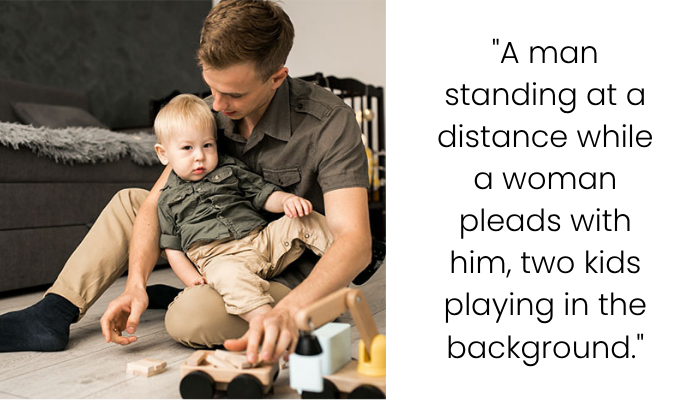WIBTAH for Refusing to Babysit My Ex-Wife’s Child in an Emergency?
This situation is dripping with emotional complexity. The original poster (30M) shares a child with his ex-wife (30F), who cheated on him with her now-husband. Since their divorce, they’ve kept communication minimal and formal through a parenting app. He co-parents their child civilly, but refuses to have any involvement with the child she had with her husband — a child he’s never had a relationship with.
Recently, her husband was diagnosed with cancer, and out of desperation, she asked if OP could watch their younger child in case of emergency — because their support network has collapsed. OP flatly refused and reiterated the boundary after she pressed the issue multiple times. His lawyer backed the decision, noting the refusal was good to have documented.
Now, he’s questioning himself. Legally, he’s covered — but morally? Is he the bad guy for saying “no” to a child in need, especially one caught in adult mistakes they had no part in?
Co-parenting with his cheating ex-wife is already difficult enough for this guy

Now she wants him to look after the child she had with her affair partner
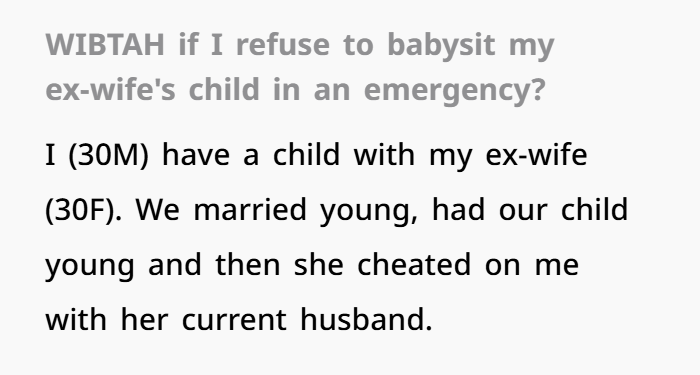
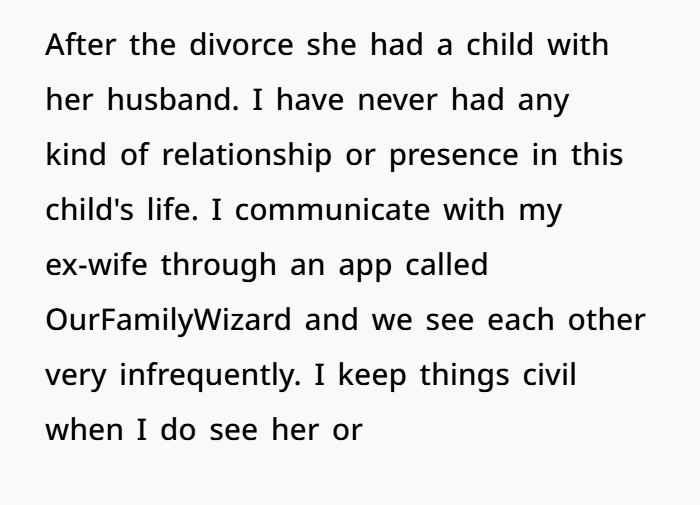
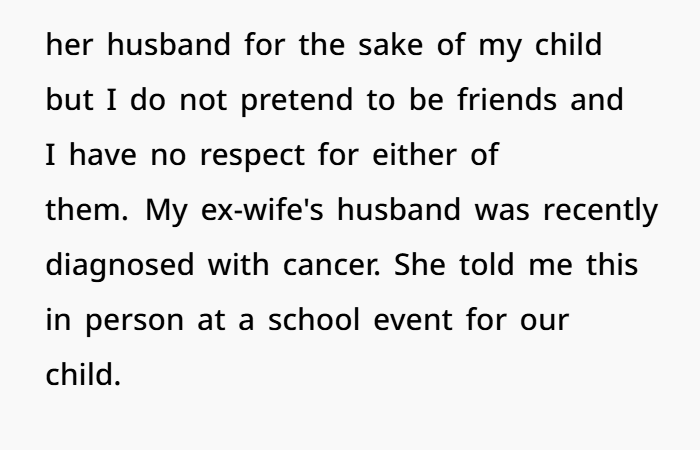
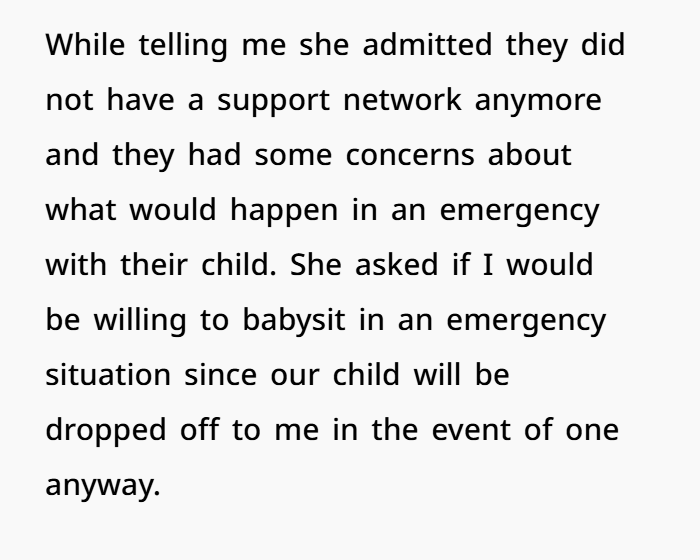
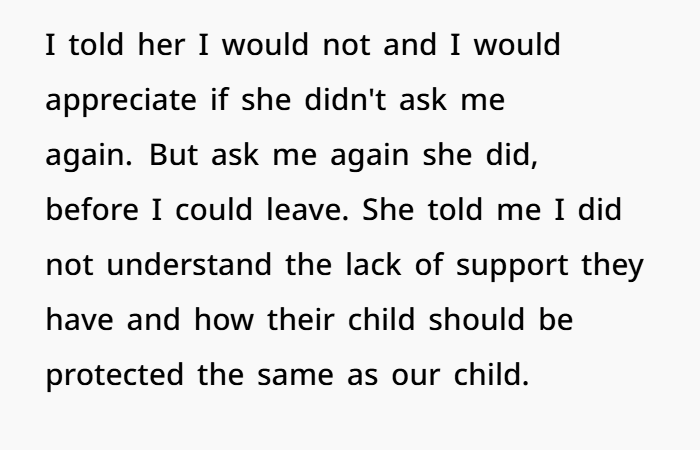
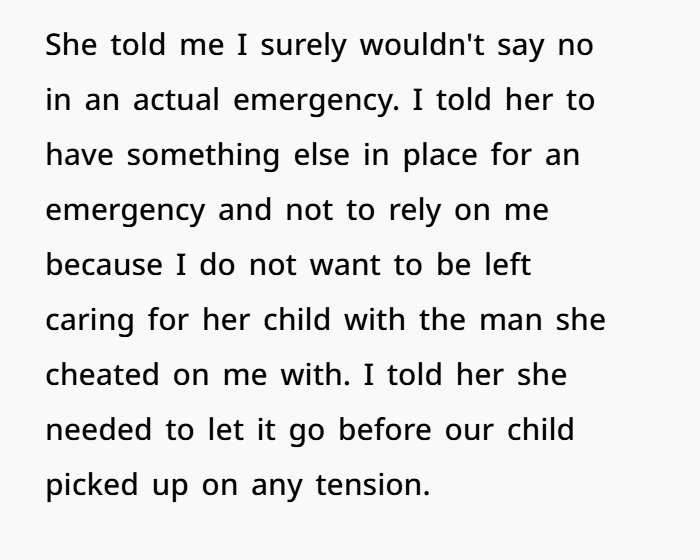
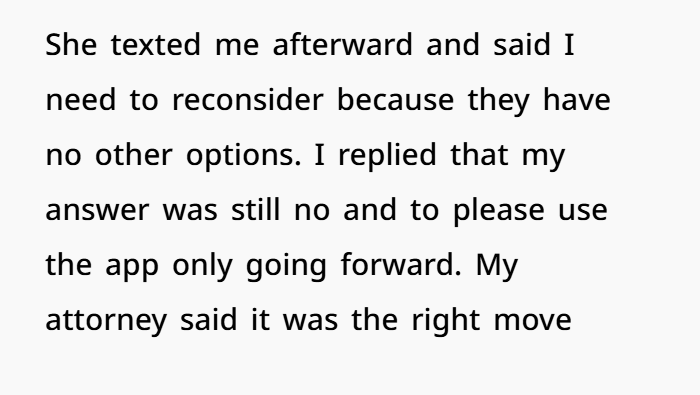
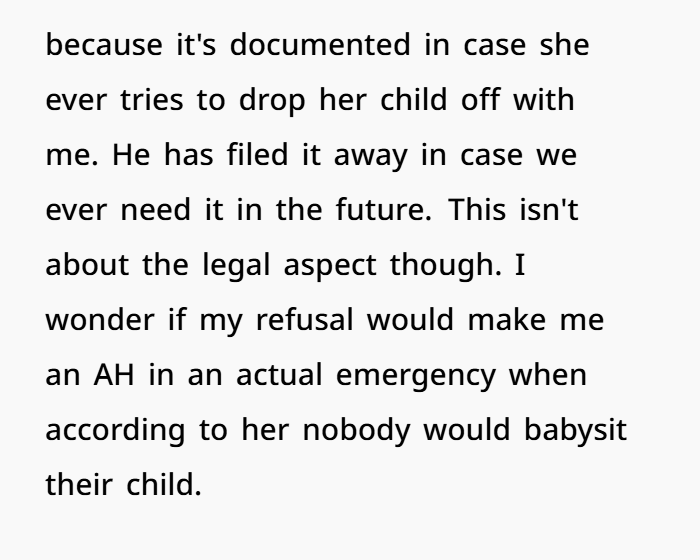
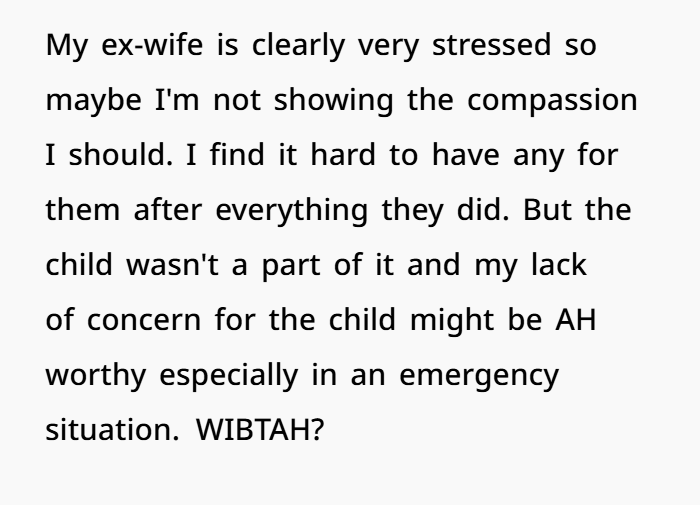
Alright, let’s peel this apart — because this is one of those stories where legality, emotion, compassion, and boundaries all slam into each other. You’re not a cold-hearted villain here, but we need to be real about what this choice means, especially in terms of parenting ethics, emotional boundaries, and emergency compassion.
Let’s look at all angles — from co-parenting best practices to the emotional and moral weight of refusing a child help.
First off: You’re not the legal guardian
You have no obligation — legal or otherwise — to this child. You’re not a stepdad, guardian, or family member to your ex-wife’s second child. You’re not being asked to take on routine responsibility, nor are you expected to treat this child equally to your own.
Your attorney advising you to keep boundaries clear is important. Any attempt to drop the child off against your will could get complicated fast — what if something happened while you were watching that child? What if the husband passes and the ex spirals and tries to shift responsibility long term? Keeping legal lines clear is smart.
But legal clarity isn’t the same as emotional clarity.
The real sticking point: the kid
Let’s state the obvious: the child is innocent. They didn’t choose to be born from infidelity or raised in a family with limited support. They didn’t hurt you. They’re just a kid whose parents made some really unfortunate decisions — one of whom is seriously ill, which is heartbreaking.
When your ex-wife asks you to step in during a true emergency, she’s not asking you to parent. She’s asking you — a capable adult who will already have her other child — to keep this second child alive and safe for a short period. That’s where the moral tension lies.
Is there a difference between not being a stepdad… and being the only nearby adult in a child’s moment of crisis? Yes. And it’s a big one.

Now let’s address the emotional pain
Your ex betrayed you. She built a new life with the man she cheated with. That doesn’t just vanish — especially if you still have to co-parent with her. It’s not petty to not want reminders of the pain. It’s human.
And yes, asking you to look after the child that literally represents the life she made without you is asking a lot. It’s not just babysitting — it’s about swallowing your pain, being the bigger person, and forcing yourself into a situation that’s tied to deep emotional hurt.
So no, it’s not heartless to say no because you need to protect your mental health and boundaries. That matters too.
But what about in an actual emergency?
Let’s say she ends up rushing her husband to the ER. No one else answers. You already have your child. Would it really be so terrible to say, “Alright, just for a few hours”? Would you feel at peace if that child ended up unsafe because of a hard no?
That’s not a trap — it’s a real thing to consider. Morality is different from obligation.
You don’t need to say “yes” forever. You don’t even need to say “yes” to her. But you might want to consider telling yourself, “If there’s truly no one else, and it’s an emergency, I’ll help for the sake of the child.”
That doesn’t mean you forgive. It doesn’t mean you’re her safety net. It just means you’re the kind of person who doesn’t let kids suffer because adults were dumb.

Compassion ≠ weak boundaries
There’s this idea that compassion means sacrificing your peace, your pain, your rights. That’s not true. You can be compassionate and have boundaries.
You could say:
“I still won’t agree to being your backup plan. But in a real emergency — if I already have our child, and your child would otherwise be unsafe — I’d step in for that moment only. Please don’t mistake this for agreement. It’s about not leaving a kid in trouble.”
This puts you in control. It keeps boundaries tight. It also lets you live with yourself later if something bad happens.
What’s at stake here
If you say yes just once, you’re not suddenly a pushover or their savior. You’re just making sure a child doesn’t suffer because of adult drama. But if you say no every time, even when there’s nowhere else for the child to go, you might one day carry that regret — not because you’re wrong, but because you could have helped and didn’t.
Would you be the asshole for saying “no” across the board?
Technically, no. You’re within your rights.
But morally? WIBTAH? If it’s truly an emergency and a child’s well-being is at risk — yeah, maybe just a little.
He provided some more info when prompted by netizens
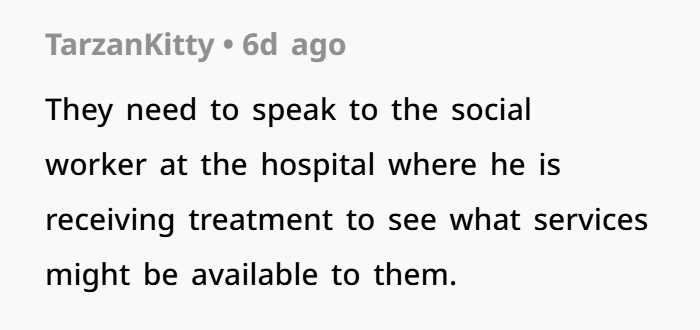
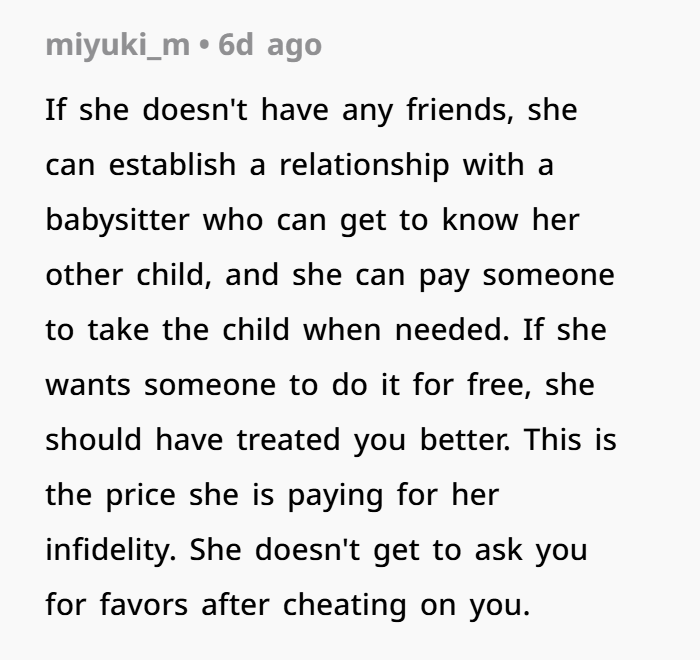
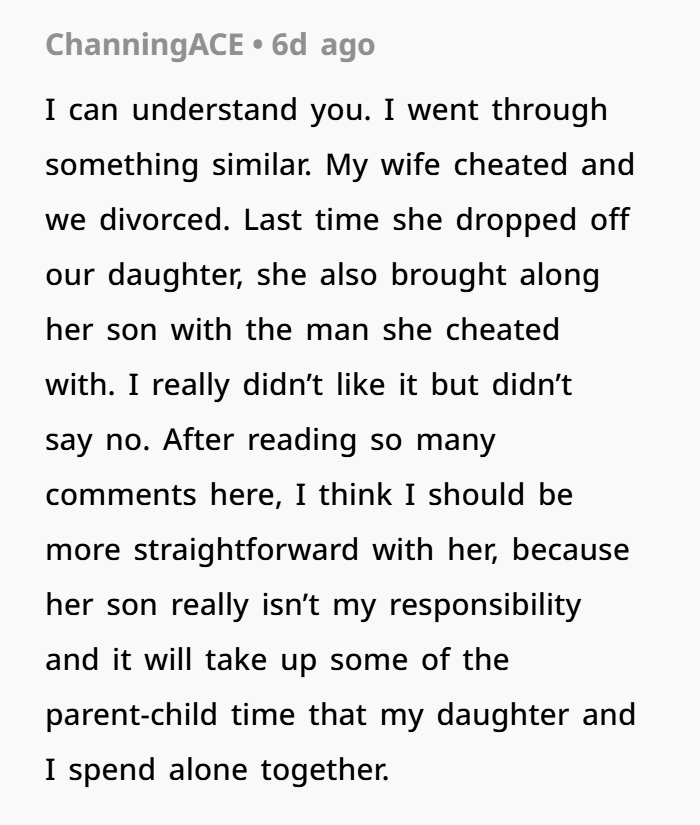
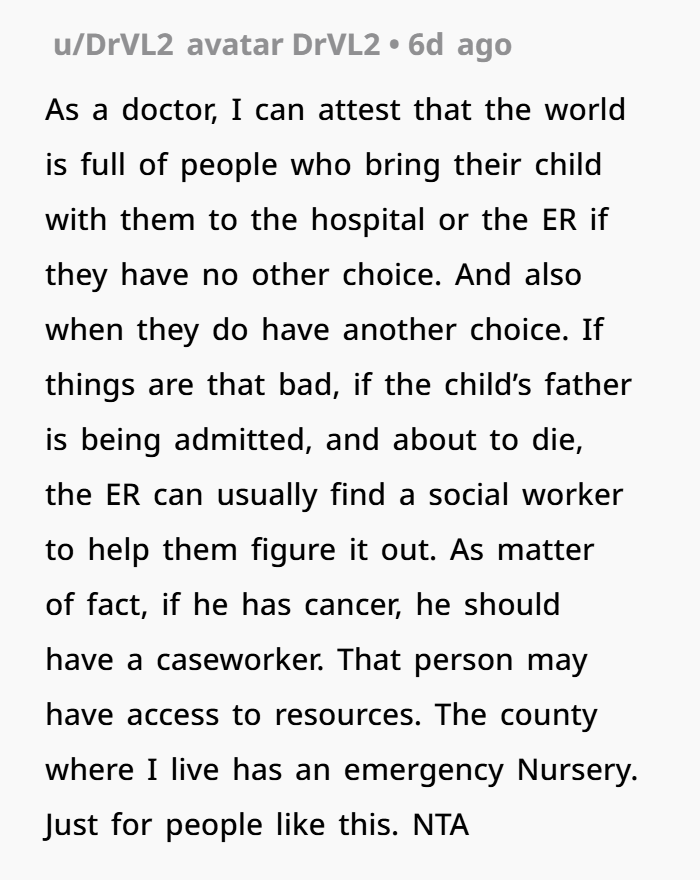
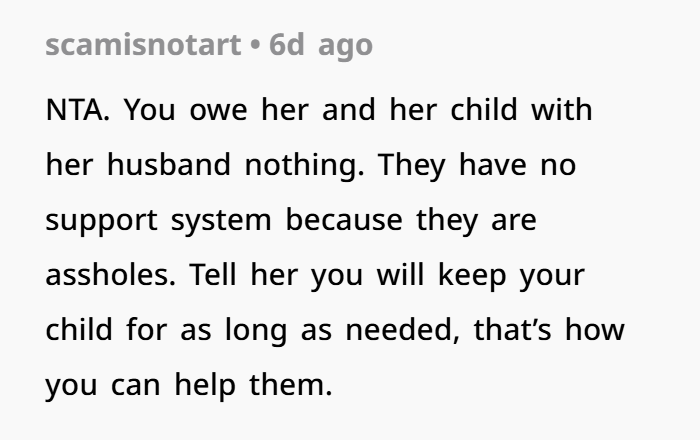
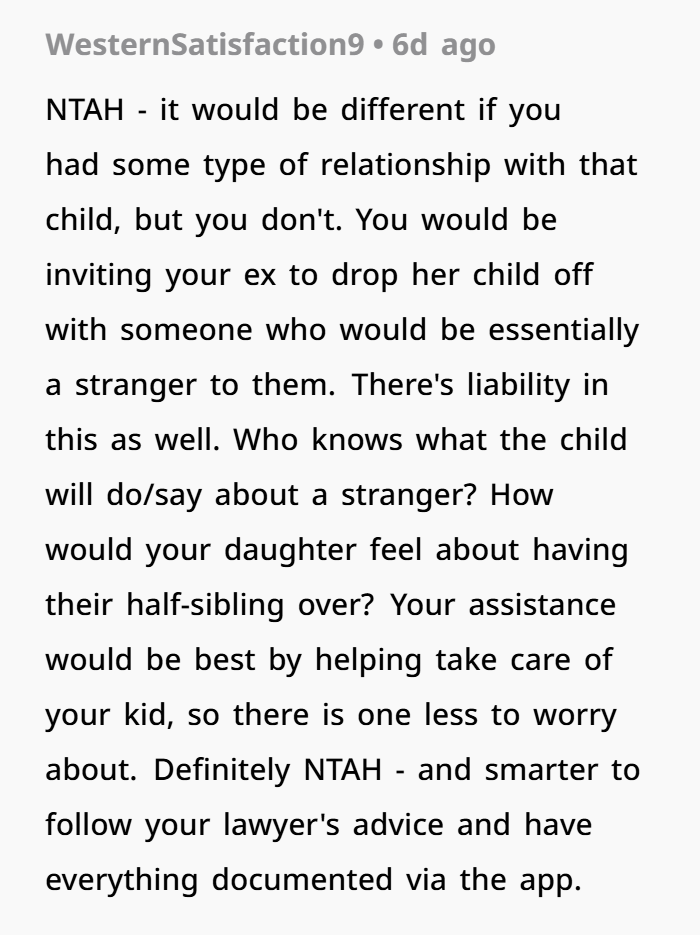
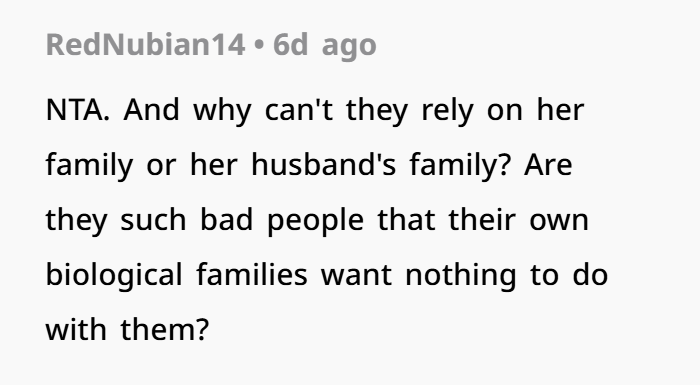
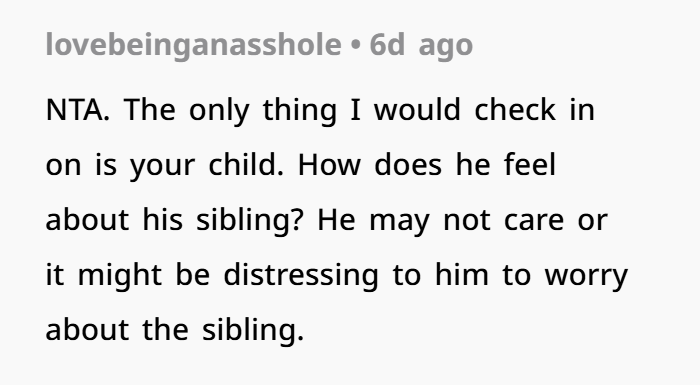
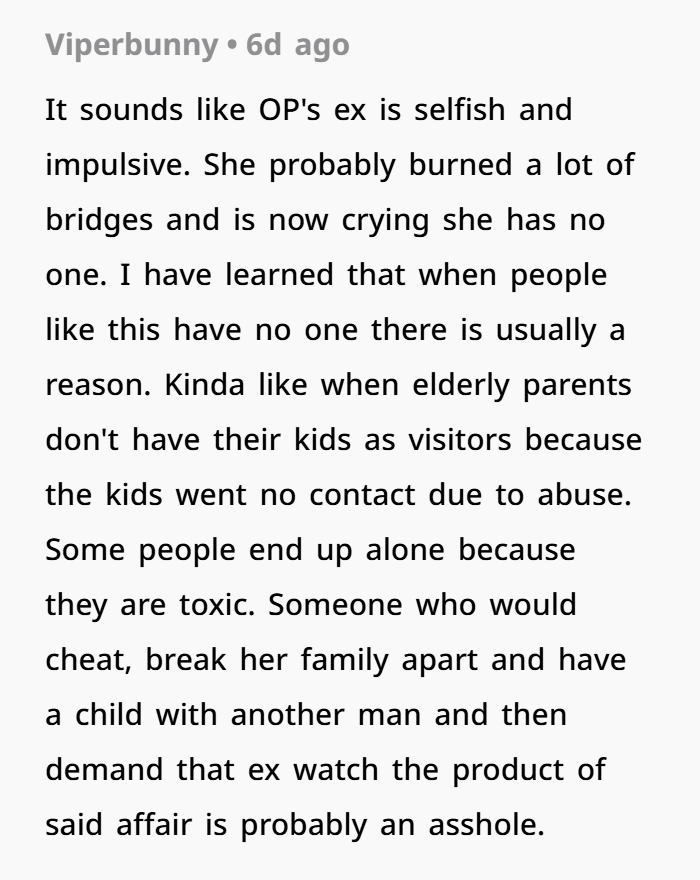
Your job is to protect your child. And yourself. That includes emotionally, legally, mentally. Your ex shouldn’t rely on you. You’ve made your boundaries clear. That’s good. That’s healthy.
But it’s also okay to hold space for rare exceptions — the kind where a kid needs safety, and you’re the only safe adult around. You’re not a free babysitter. You’re not a stepdad. But you are a decent person. Sometimes, that’s what matters most.

